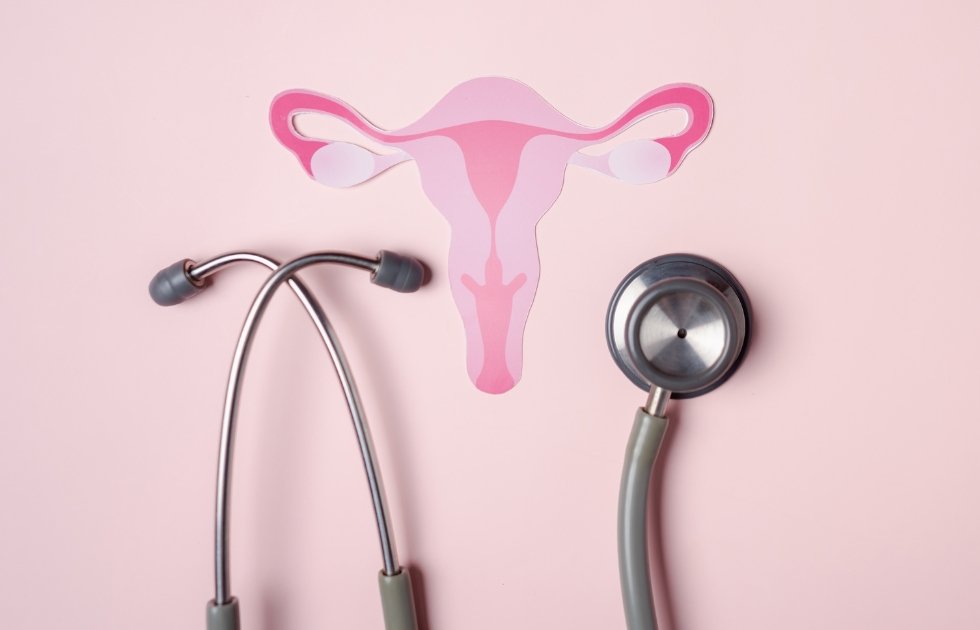How Naturopathic Medicine is the Key for Effectively Managing PCOS

What is PCOS?
PCOS stands for Polycystic Ovarian Syndrome. You may have heard it through a friend or even wondered if you yourself have the condition. It is a very common hormonal & metabolic disorder that affects approx 5 – 15% of biological females worldwide.
It takes an average of 2 years to be formally diagnosed and even longer for those whose symptoms have been masked by hormonal birth control. It is actually quite simple to get a diagnosis.
How do I get a PCOS diagnosis?
Our current method for diagnosing PCOS is through the Rotterdam criteria. In order to have a diagnosis of PCOS you must have 2 out of the 3 criteria to qualify:
- Irregular, long, or absent menstrual cycles
- High androgen hormones either on labwork or symptoms such as excess hair
- Polycystic and/or enlarged ovaries visible on ultrasound
Contrary to popular belief, you do not need to have polycystic ovaries to have polycystic ovarian syndrome. You still qualify for the diagnosis if you have both irregular cycles and high androgens.
PCOS is a diagnosis of exclusion, meaning along with having the 2 out 3 criteria, you must also rule out conditions that present similarly to PCOS, such as hypothalamic amenorrhea thyroid conditions, and non-congenital adrenal hyperplasia.
What are the symptoms?
Those with PCOS can experience a wide range of symptoms, such as:
- Irregular, long, or absent menstrual cycles
- Weight gain
- Oily Skin
- Acne
- Excessive hair growth
- Hair loss or thinning hair
- Skin conditions like Acanthosis nigricans, skin tags
- Fatigue
- Low Libido
On labwork, we can see, but not always:
- High LH
- High Androgens (Testosterone, DHEA)
- Low SHBG
- High AMH
- High glucose, insulin, and/or hemoglobin A1c
- High liver markers
- High cholesterol and/or triglycerides
- Low Vitamin D
- High or dysregulated cortisol
It can also increase the risk of health issues such as:
- Infertility
- Miscarriage
- Type 2 Diabetes
- High Blood pressure
- Cardiovascular disease
- Endometrial cancer
- Anxiety & depression
- Gestational Diabetes
- Pre-eclampsia
What is really going on with PCOS?
Polycystic Ovarian Syndrome is often just thought of as a hormonal condition when in reality it is bit more complicated than that. It also involves our metabolic pathways. Along with seeing hormone levels out of balance, approximately 70% of those with the condition have insulin resistance, which is worsening PCOS symptoms.
Insulin resistance is when our cells become less sensitive to the hormone insulin, whose job is to bring glucose (blood sugar) into our cells for energy. This metabolic disruption wreaks havoc on the body and worsens PCOS. Higher levels of insulin trigger the release of luteinzing hormone, testosterone, and lower SHBG, all contributing to the halting of ovulation. Without ovulation, the release of a mature egg from an ovary, you cannot get a true period. Without ovulation, you also do not get the opportunity to get pregnant that cycle.
On top of hormonal imbalances and insulin resistance, those with PCOS can experience disrupted appetite-regulating hormones, higher levels of inflammation, and dysregulated cortisol (our stress hormone).
Some lesser-known symptoms include:
- Food cravings (especially for sweets & carbs)
- Tired after eating
- Frequent hunger or hungry even after finishing a meal
- Difficulty with overeating
- Tired during the day
- Insomnia
- Frequent urination
Conventional Treatment
Conventional treatment is limited to hormonal birth control, blood sugar management medications, and weight loss if indicated. It is not uncommon for those with PCOS to be told “lose weight, take the pill and come back later when you want to get pregnant.”
Hormonal birth control provides a monthly bleed which protects the health of the uterine lining, but it does not address the root causes of PCOS. Since birth control prevents ovulation from occurring, it is not a true period but rather a withdrawal bleed from the hormonal medication that is happening. Birth control can provide some symptom relief such as a regular predictable bleed and improved acne; however, it won’t address the array of bothersome symptoms one can experience.
The other frustrating aspect of conventional care can be the recommendation for weight loss. Oftentimes, those with PCOS are told to lose weight and to address their condition with little to no empathy or an effective plan to achieve weight loss. Weight management is much more complicated than the calories in and calories out approach. There are many more obstacles at play making it more difficult to achieve and maintain success.
There is definitely a time and a place for medication, but it should not be the only option presented to you. Especially now that we have a greater understanding of PCOS and evidence to support naturopathic treatments such as supplements, herbs, acupuncture, and dietary & lifestyle approaches.
Naturopathic Medicine & PCOS
Addressing the condition is not just about balancing hormones but looking at each person with PCOS as an individual:
- Getting you a proper & thorough diagnosis
- Identifying which factors are impacting your PCOS
- Addressing the root cause of your PCOS through evidence-based dietary & lifestyle recommendations, acupuncture, supplements & herbal medicine
- Supporting you with your specific health goals (weight loss, fertility, acne, etc.)
- Lowering your risk for future health complications like diabetes, cardiovascular disease & endometrial cancer
Naturopathic medicine offers a comprehensive and patient-centered approach to managing PCOS. Naturopathic treatments can also work alongside conventional treatments for additional support. By addressing the root causes of your condition we can not only achieve better health & improve symptoms but set the stage for a healthier future you.
Dr. Laura has worked with countless of people with PCOS. As someone who has PCOS herself, she is passionate about providing thorough, empathetic & effective care to those struggling with the same condition. She believes that those with PCOS deserve more options outside of medication and has seen huge benefits from a naturopathic approach with herself and patients alike.
If you a ready to address your PCOS and feel empowered to take charge of your health, book a free 15-minute call to learn more about a personalized approach to PCOS that targets your specific needs.



